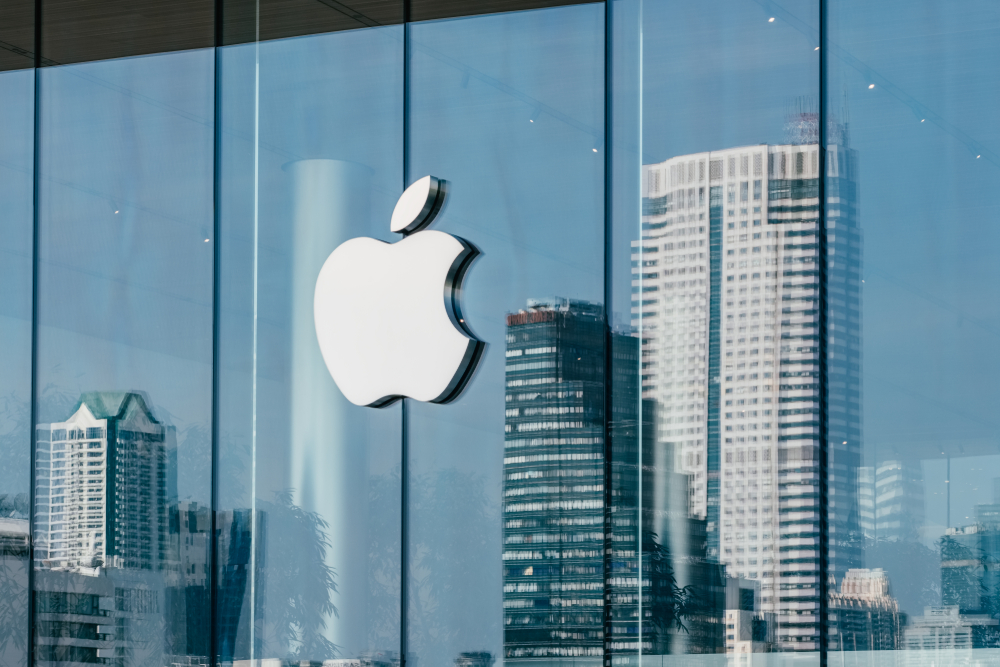
As smartphone upgrades have become more incremental in recent years, consumers are holding onto their current models longer than they used to.
For Apple (AAPL), that shift has turned its services business into a critical revenue driver as iPhone sales growth slows.
Apple’s services include App Store sales, iCloud, Apple TV+, Apple Pay, AppleCare+, and advertising and search licensing revenue from Google.
It’s now a $100 billion segment, the company’s second-largest moneymaker, behind only the iPhone.
European regulators, however, aren’t fans of Apple’s new business model and see it as the biggest threat to fair market competition on the continent.
On Monday, French antitrust authorities fined Apple $162.4 million, accusing it of using a privacy control tool to abuse its dominance in mobile app advertising. It’s the first fine tied to Apple’s App Tracking Transparency feature.
Just weeks earlier, Apple lost its appeal in Germany’s top civil court over its designation as a company with “significant market power.” That classification gives German antitrust regulators broader authority to scrutinize Apple’s operations.
In its March ruling, the Federal Court of Justice upheld the 2023 designation from the German Cartel Office, which labeled Apple “a company of paramount cross-market significance for competition.”
“This means that the highest court has confirmed that Apple is subject to stricter abuse control,” said cartel office president Andreas Mundt in a statement.
Europe’s scrutiny could be a threat to Apple’s share price that may prove more serious than the iPhone slowdown.
Europe leads global crackdown on Big Tech
The German ruling didn’t come as a surprise, but Apple said in an email to Reuters that it “neglects the value of a business model that places the privacy and security of users” at its core.
Still, European regulators are growing more concerned about the vast amounts of user data collected by Big Tech platforms like Meta, Google, and Apple — and they’ve stepped up efforts to prevent those firms from squeezing out competition.
Europe accounts for just over 27% of Apple’s total revenue.
At the center of this crackdown is the European Union’s Digital Markets Act (DMA), a 2023 law that sets “obligations for gatekeepers.”
The “gatekeepers” refer to large digital platforms offering core services like app stores, search engines, and messaging apps.
The DMA could eventually limit Apple’s ability to expand its ecosystem in Europe.
Apple’s services business brought in $101 billion in FY2024, up 14% year over year.
“My view is that investors have priced in a higher valuation multiple to Apple under the impression that its Services segment will continue to grow steadily and continue to boost margins as it is,” Aseity Research wrote on Seeking Alpha.
“But Apple’s growth also depends on its ability to maintain its ecosystem and extract fees from developers, advertisers, and its Google Pay integration — all of which the DMA directly threatens,” the firm added.
Morningstar analyst William Kerwin also emphasizes the growing importance of services to Apple’s overall business.
He points out that iPhone revenue fell 1% year over year in 2024 and expects sluggish growth through fiscal 2029.
That means Apple’s revenue — and its share price — is becoming increasingly tied to the performance of its services division.
“Services growth and profitability remain attractive pieces of Apple’s story,” Kerwin wrote. “We believe Apple’s continued double-digit year-over-year growth from its services business is a shining example of Apple’s software prowess and incredibly sticky ecosystem.”
Your email address will not be published. Required fields are markedmarked